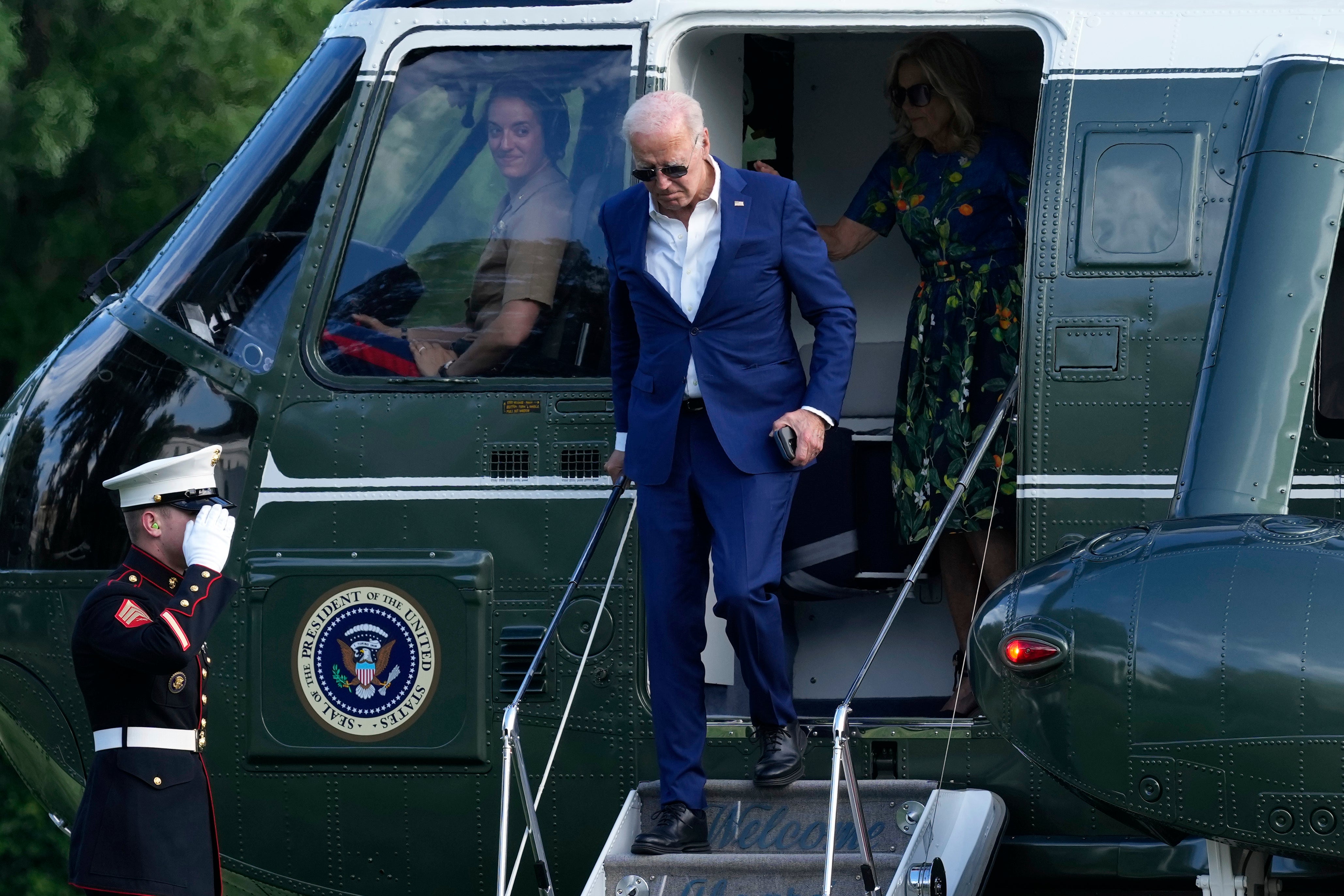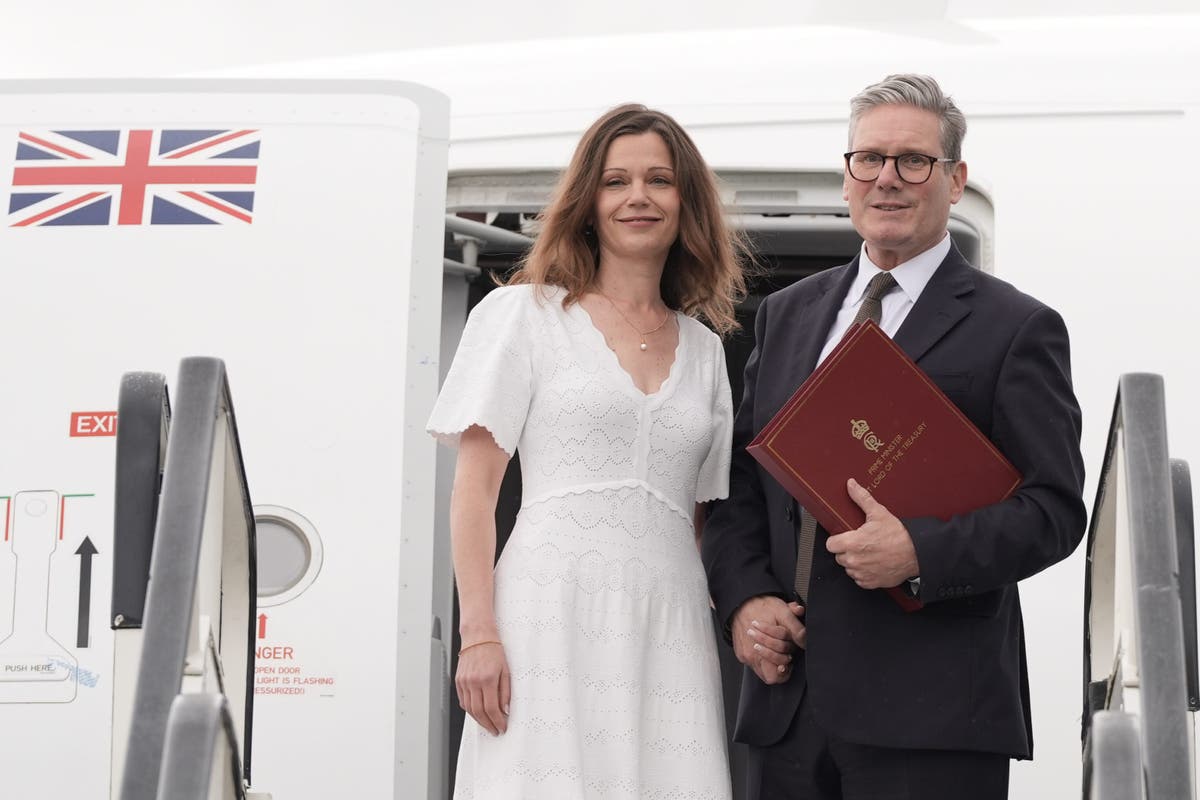When Tony Blair won the 1997 election for Labour with a landslide Commons majority of 179 seats, the world was largely at peace.
New vistas in international relations had opened up following the end of the Cold War, pointing the way to a stable international order: there was talk of Russia joining Nato, the PM went to St Petersburg, and Vladimir Putin chose Britain for his first official visit to the West.
Blair, who had been a leftist in his youth and had taken part in CND marches, proved in office to be a great believer in the use of armed force. He sent British troops to war five times in six years, more than any previous prime minister. Most of these wars of liberal intervention – in East Timor, Kosovo, Sierra Leone, Afghanistan part one – were outwardly successful; but then came the Iraq conflict, the fallout from which still shrouds his legacy.
Keir Starmer, with a Commons majority of 174, brings Labour back to power at a perilous time, with bloody conflicts in Ukraine and Gaza, China threatening to invade Taiwan, and constant cyberattacks being carried out by Russia, Iran and North Korea.
Labour’s campaign repeatedly emphasised its commitment to national security. Starmer pledged to keep Trident as part of a “nuclear deterrent triple lock”; to place Nato at the centre of military strategy; to continue to provide Ukraine with armed support; and to boost defence spending to 2.5 per cent of GDP once the economy allows.
Labour says this shows how far the party has moved on from the leadership of Jeremy Corbyn, who opposed maintaining Trident and was frequently critical of Nato.
At Starmer’s first foreign trip to the Nato summit in Washington this week, he will reiterate the pledge he made to Volodymyr Zelensky that Britain’s commitment to Ukraine is unwavering.
John Healey – on only his second day as Britain’s defence secretary – went to Odesa with an offer of fresh military aid, including artillery rounds and missiles. New foreign secretary David Lammy visited Nato allies Germany, Poland and Sweden, and had a message for China over the assistance it has offered to Russia in Ukraine.
Starmer and Blair are said to talk regularly. Labour’s defence and foreign affairs teams spoke with former members of Blair’s cabinet while preparing for power. However, there are significant differences between the way the world is now and how it was during the Blair years.
The much-vaunted “special relationship” was particularly strong between Blair and George W Bush, and played a part in the decision to follow the US into the wars in Iraq and Afghanistan.
Successive US administrations saw the UK as a highly valuable interlocutor with the European Union, something at which Blair was especially adept. But that ended with Brexit. Washington has strengthened its own ties with Brussels without British involvement.
Labour has been working avidly on its relationship with the US, with Lammy being particularly active. His team has been consulting senior figures from the Blair and Gordon Brown governments, including Blair’s former chief of staff, Jonathan Powell.

However, the return of Donald Trump to the White House in November – now a distinct possibility – would make it difficult for Starmer to maintain this historical relationship.
Lammy has in the past described Trump as a “racist KKK and Nazi sympathiser”, but he has been working to repair relations with Trump’s Republicans. In the last six months, he has met, among others, former secretary of state Mike Pompeo, former national security adviser Robert O’Brien, rising star and potential Trump running mate JD Vance, Lindsey Graham, and senior Republicans Jim Risch and Thom Tillis.
These efforts are yet to bear fruit. After last week’s general election, Trump was effusive about his friend, Nigel Farage, describing him as “a man who truly loves his country” while ignoring Starmer’s victory.
Trump has been aggressively demanding an increase in European defence budgets. In government, Labour could try to reprise Britain’s former role connecting Washington and the EU, and become a bridge between a Trump administration and Nato by encouraging member states to spend more on defence.
A problem here is that Britain’s defence spending has been repeatedly cut by previous governments, while other Nato states have made substantial increases. Germany’s 2024 defence budget is now bigger than Britain’s for the first time since the Second World War, at £77.5bn compared with £63.9bn.
As a result, “large parts of the UK’s armed forces lack the critical enablers, munitions, and maintenance capabilities they need to be match-fit for Nato’s front line against Russia”, says Malcolm Chalmers, deputy director general of think tank RUSI. Spending on Britain’s own conventional forces has not risen in real terms since 2022. What is needed, Chalmers adds, “is a guarantee of steady and substantial real-term growth each year for a decade or more”.
Britain backed the US-led Iraq invasion with 46,000 troops, and in Afghanistan’s Helmand province alone, there were almost 10,000 troops and 137 bases for years as part of the American-led International Security Assistance Force.
However, the army now is the smallest it has been for 300 years. Major General James Martin, who, as part of the 16 Air Assault Brigade, took part in the 2021 evacuation of Afghanistan and now heads the 3rd Division, warns that the army is “in the process of losing the skills required to mount an all-out campaign”, adding: “After 20 years of counterinsurgency campaigning, we are losing this [war-fighting] capability.”
Britain can currently send a brigade of up to 5,000 in a conflict. General Sir Richard Dannatt, the former head of the army, dismisses the prospects of deploying an entire division – around 35,000 troops – for a major war. “We can’t do that, frankly,” he says. “Underfunding of defence has resulted in cuts, and it’s produced a capability that just isn’t credible at the present time.”

